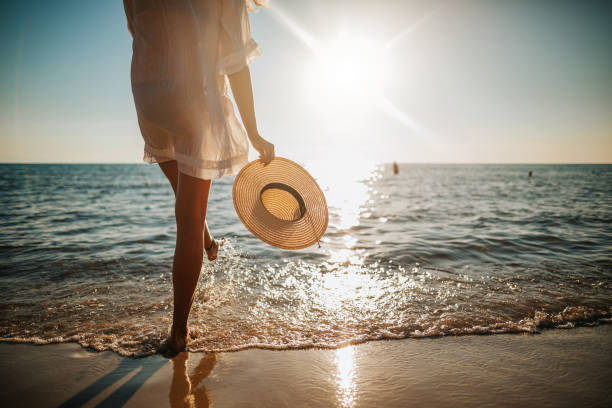Summer Things – What You Need To Beat The Heat
As temperatures soar and the sun blazes in its full glory, beating the summer heat becomes the season’s primary combat. From keeping your body hydrated to ensuring your home remains a cool sanctuary, there’s an array of essentials you must arm yourself with to enjoy the warmer months safely and comfortably. This article will take a closer look at various items and strategies that are imperative for your summer arsenal. Whether you’re planning a vacation to the beach or just trying to stay cool at home, we’ll cover the fundamental necessities to help you keep cool and enjoy the summertime without breaking a sweat.
Hydration Helpers: Staying Quenched and Cool
Hydration is critical as temperatures rise, and this means more than just drinking the requisite eight glasses of water a day. Your body loses fluids rapidly through sweat, and replacing them is important to maintain your health and energy. Here’s what can help:
- Insulated Water Bottles: A quality insulated water bottle will keep your water cool for hours, which can be a refreshing relief in the heat.
- Electrolyte Supplements: Added to your water, they can quickly replace salts and minerals lost through sweating. They come in various forms, including tablets, powders, and pre-mixed drinks.
- Infuser Water Bottles: They allow you to add a natural fruit flavor to your water, making it more palatable if you find it hard to drink enough throughout the day.
Besides hydration, you can also make use of misting fans and evaporative cooling towels to offer instant relief when you’re feeling overheated.
Summer Wardrobe: Dressing for the Season
While it’s important to be fashionable, in summer, the materials and fit of your clothing can be the difference between comfort and misery. Linen and cotton are materials that tend to breathe more than synthetics, allowing air to flow and keeping you cooler. Choose light colors over dark, as they reflect rather than absorb the sun’s rays.
- Loose-fitting clothes to allow your skin to breathe and prevent overheating
- Wide-brimmed hats for shade and protecting your face from sunburn
- UV-protection sunglasses to shield your eyes
- Comfortable, airy footwear like sandals or breathable sneakers
A summer wardrobe isn’t just about personal style; it’s a key component of summer safety. Don’t forget to apply a generous layer of sunscreen to exposed skin to prevent burns and long-term damage, reapplying regularly if you’re staying outdoors.
Sun Protection: Your Shield Against Harmful Rays
The sun’s ultraviolet (UV) rays can quickly cause sunburn and prolonged exposure may lead to more serious health issues. It is essential to arm yourself with the right sun protection:
- A broad-spectrum sunscreen with SPF 30 or higher is indispensable. Apply it to all exposed skin and reapply every 2 hours, or more often if swimming or sweating.
- Lip balm with SPF protection prevents chapped and sunburned lips.
- Portable sun shelters or beach umbrellas provide a safe space to cool down and avoid direct sunlight.
Remember to seek shade during the most intense UV exposure times, typically between 10 a.m. and 4 p.m. If you’re on the go, lightweight, long-sleeved cover-ups can provide additional protection.

Beat the Indoor Heat: Keeping Your Home Cool
While outdoor precautions are important, maintaining a cool indoor environment can also make a significant difference in your comfort during the summer. Here are several strategies to beat the indoor heat:
- Use air conditioning intelligently, installing smart thermostats to regulate home temperature effectively.
- Ceiling and oscillating fans can circulate air and create a breeze even in non-air-conditioned spaces.
- Investing in blackout curtains or reflective window films can block out the heat from the sun.
- Cross-ventilation is key—open windows in the evening or early morning to let in the cooler air.
- Cooling gel pillows and moisture-wicking bed linens to make nighttime more comfortable.
It’s also worth considering the use of energy-efficient appliances and lights that emit less heat when in operation, contributing to a cooler home atmosphere.
Refreshing Foods and Beverages
What you eat and drink during the summer can also play a role in how you handle the heat. Light meals that don’t require long cooking times are ideal—think salads, cold pasta, or fruit gazpacho. Water-rich fruits and vegetables, like watermelon and cucumber, can help to keep you hydrated from the inside out. Additionally, icy treats like homemade popsicles, sorbet, or ice cream are not only refreshing but delight the pallet on hot summer days.
Consider crafting a few ‘cool down’ beverages like iced tea, lemonade, or even mocktails with plenty of ice. Just be wary of consuming alcohol and caffeinated drinks, as they can dehydrate you quickly.
Conclusion
By equipping yourself with these summer essentials, you can effectively combat the heat and make the most of the long, sunny days. Hydration, protective clothing, vigilant sun care, and maintaining a cool living space while relishing in chilled refreshments are all integral parts of enjoying summer safely. Don’t let the heat wave dampen your spirits; with preparation and the right items, you can keep cool and relish the best of what summer has to offer.
FAQs
1. How often should I reapply sunscreen? You should reapply sunscreen at least every two hours, or more frequently if you are swimming or excessively sweating.
2. Can certain foods help to keep me cool? Yes, consuming water-rich foods like fruits and vegetables can help keep your body temperature down. Spicy foods can also trigger sweating, which cools the body upon evaporation.
3. Are fans effective in extreme heat? Fans help to circulate air and can make you feel cooler through the wind-chill effect; however, during extreme heatwaves, they may not prevent heat-related illnesses. It’s important to stay hydrated and use other cooling measures.
4. Is it necessary to invest in a high SPF sunscreen? An SPF of 30 or higher is recommended for effective protection against sunburn and skin damage, but the key is to apply it correctly and frequently.
5. What are the signs of dehydration? Signs of dehydration include thirst, dry mouth, fatigue, dark-colored urine, dizziness, and confusion. It’s vital to drink fluids and seek shade if you notice these symptoms.

